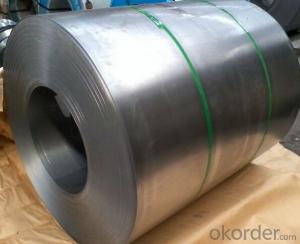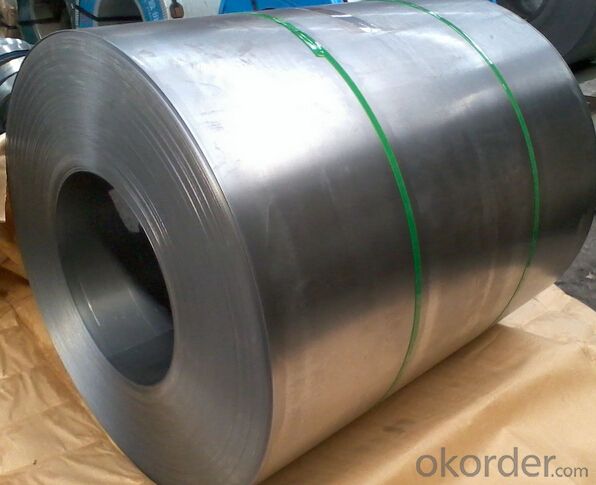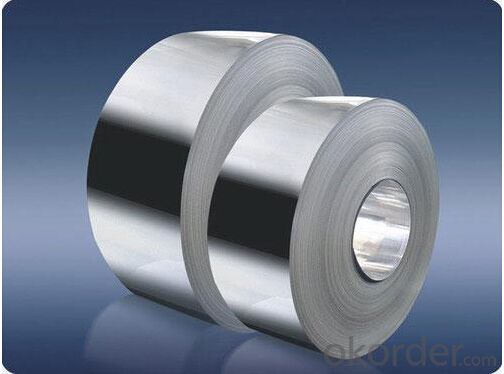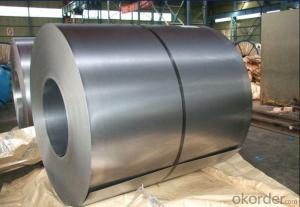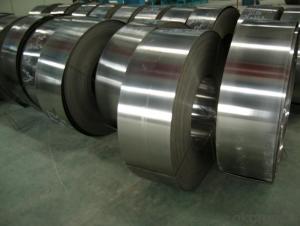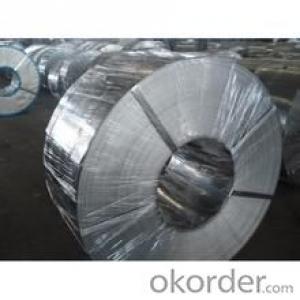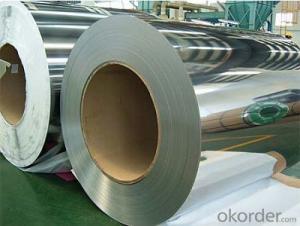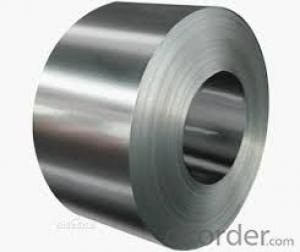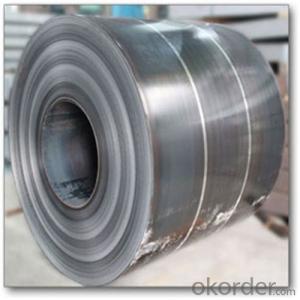High Quality of Cold Rolled Steel Coil of China
- Loading Port:
- Tianjin
- Payment Terms:
- TT OR LC
- Min Order Qty:
- 100 m.t.
- Supply Capability:
- 5000 m.t./month
OKorder Service Pledge
OKorder Financial Service
You Might Also Like
1.Structure of Cold Rolled Steel Description:
The raw material of cold rolled steel coil/sheet is high quality hot rolled product, and after pickling continuous rolling, degreasing, annealing,skin pass,slitting and cut to length line etc. Along with it many kinds of new technology and new process of global cold rolling production have been applied. Therefore the quality of the goods could be guaranteed. The product is widely used in outdoor and interior decoration, furnishing manufacturing, home appliance, automobile etc.
2.Main Features of the Cold Rolled Steel:
• Excellent process capability
• Smooth and flat surface
• Workability, durability
• Excellent heat resistance performance
• High strength
• Good formability
• Good visual effect
3.Cold Rolled Steel Images
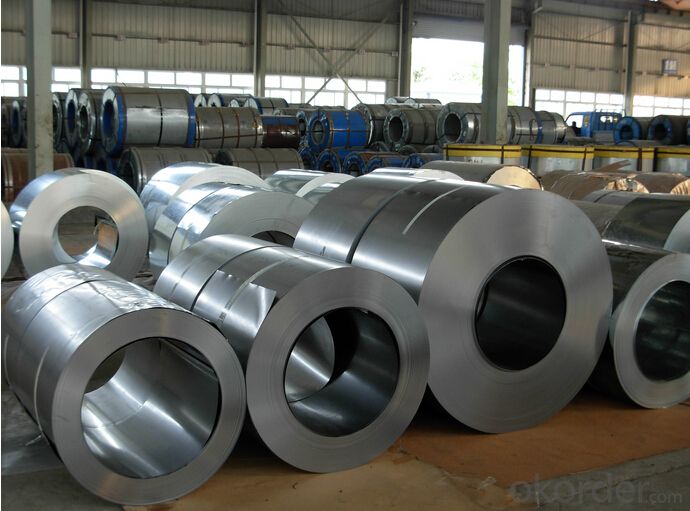
4.Cold Rolled Steel Specification
Standard:AISI,ASTM,DIN,GB,JIS,JIS G3302 ASTM 653M EN10142
Grade: Q195~Q345
Thickness: 0.16mm~1.5mm,0.16-1.5mm
Width: 1250,600-1250mm
Coil weight:3-12 MT
Coil ID:508/610mm
Chemical composition:
C | Si | Mn | Cr | Ni | P | S |
0.150 | 0.476 | 11.231 | 12.50 | 0.900 | 0.039 | 0.010
|
5.FAQ of Cold Rolled Steel
We have organized several common questions for our clients,may help you sincerely:
1.How about your company?
A world class manufacturer & supplier of castings forging in carbon steel and alloy steel,is one of the large-scale professional investment casting production bases in China,consisting of both casting foundry forging and machining factory. Annually more than 8000 tons Precision casting and forging parts are exported to markets in Europe,America and Japan. OEM casting and forging service available according to customer’s requirements.
2.How to guarantee the quality of the products?
We have established the international advanced quality management system,every link from raw material to final product we have strict quality test;We resolutely put an end to unqualified products flowing into the market. At the same time, we will provide necessary follow-up service assurance.
3. How long can we receive the product after purchase?
Usually within thirty working days after receiving buyer’s advance payment or LC. We will arrange the factory manufacturing as soon as possible. The cargo readiness usually takes 15-25 days, but the shipment will depend on the vessel situation.
- Q: Measures to prevent cold rolling of packaged cold rolled steel coils? Who can give some professional opinions oh?
- Cold rolled steel coils are generally sprayed antirust oil, according to user requirements, light, medium, heavy oil 3 types. Nevertheless, if the oil is volatile or in a humid environment, the steel plate comes into contact with the water for a period of time, indicating that it is beginning to rust.
- Q: A song by brokencyde is called Blue Steel.... a verse in it says Don't make me show you blue steel.
- Reference is to a gun which is typically the process of Bluing the steel of the guns metal parts.
- Q: Can steel coils be coated with PVC?
- Yes, steel coils can be coated with PVC. PVC coating provides added protection against corrosion and increases durability and longevity of the steel coils.
- Q: this is for a school project due morrow can u please answerwhat are disadvantages of stainless steelplease also show were u got info ty
- Disadvantages of Stainless Steel: 1. High initial cost 2. Difficult to fabricate, or in other words, it is not as malleable as other metals, say iron, and hence if not fabricated properly, results in costly re-work. 3. Difficult to weld 4. High cost of polishing etc. i.e. adding finishing touches for the market. Also, for the record: Stainless steel does NOT rust. One of the advantages of it over other metals (steel and iron) are that it is rust-free. But of course, depending on the environment condition (E.g. long periods in a rainforest without use at all) it can rust....this is a very rare (and unfortunate) situation. ;)
- Q: How are steel coils processed for further use?
- Steel coils are processed for further use through a series of steps including uncoiling, leveling, cutting, and shaping. The coils are first uncoiled to separate them into individual sheets. Then, the sheets undergo leveling to remove any imperfections and ensure a flat surface. After that, the sheets are cut into desired lengths or shapes using precision cutting tools. Finally, the cut sheets are shaped according to the specific requirements of their intended application, such as bending, rolling, or stamping.
- Q: Does the solution change, or does only the steel wool change color?
- once you upload water to anhydrous copper(II) sulphate it turns blue because of the fact that's going to become hydrous copper(II) sulphate. Then, in case you upload water greater, that's going to proceed to be blue, could be slightly darker.
- Q: I am thinking of buying a stainless steel necklace, but I need to know if it will discolor. My brothers ring turned brown, but he forgot what kind of metal it was. Also answer if I can wear it in the shower because I wear my other necklace in it.
- I would say don't wear it in the shower because it will tarnish and it could rust.
- Q: How are steel coils inspected for flatness using optical sensors?
- Steel coils are inspected for flatness using optical sensors by employing a system known as optical flatness measurement. This method involves the use of high-resolution cameras that capture images of the steel surface as it passes through the inspection line. Firstly, the steel coil is unwound and passed over a roller table. As it moves, the optical sensors are positioned above the coil to capture images at regular intervals. These sensors typically consist of a combination of laser line projectors and high-resolution cameras. The laser line projectors emit a thin, straight line of laser light across the width of the steel coil. This laser line acts as a reference plane for measuring the flatness of the steel surface. The high-resolution cameras then capture images of the laser line as it interacts with the steel coil. The captured images are then analyzed using advanced image processing algorithms. The algorithms analyze the deformation of the laser line on the steel surface and calculate the deviations from the flat reference plane. These deviations indicate any irregularities or variations in the flatness of the steel coil. The optical sensors can accurately detect even the slightest deviations in flatness, measuring them in micrometers or even smaller units. This enables manufacturers to identify and rectify any flatness issues in the steel coils before further processing or shipment. In addition to measuring flatness, optical sensors can also detect other surface defects such as waviness, scratches, or dents. By incorporating multiple cameras and laser line projectors from different angles, a comprehensive inspection of the steel coil's surface can be achieved. Overall, the use of optical sensors for inspecting steel coil flatness provides a fast, accurate, and non-contact method. By detecting and rectifying any flatness issues early in the production process, manufacturers can ensure the delivery of high-quality steel products to their customers.
- Q: How is steel different than iron?How many different kinds of steel are there?What type is the strongest?Which type is the weakest?
- As first answer says, if you look at the number of commercial steel alloys available and consider that any given alloy can be heat treated to a wide range of physical properties, there are thousands and thousands of potential combinations. Technically, steel is an alloy of Fe and C but there are Fe-C alloys that are called cast irons, not steel, and... there are lots of alloy steels which have significant amounts of other elements added like Cr, Ni, Nb, V, Mo, etc. Fe alloys that have a lot of Cr and or Ni added are called stainless steels and there are dozens of them and many of them can be heat treated to produce a wide range of properties. As far as the strongest or the weakest, you have to get really specific about exactly what you mean because some steels are designed for room temperature properties, some are designed for elevated temperature properties, some for static loads, some for impact loads, some for wear resistance, etc, etc.. Steels make up the largest family of metal alloys (by weight and by volume) that humans use. There are a number of reasons for this but the big reasons include: 1) there is a LOT of iron on earth 2) it is relatively cheap to produce 3) you can easily change the physical properties over a every wide range. As an example... you can take a piece of steel that is so brittle it will shatter if you drop it on the floor and heat treat it so you can bend it like a pretzel without cracking and then heat treat it again to make it very strong and tough (resistant to fracture).
- Q: Apparently, this has to do something with electrochemical cells.
- Steel wool is a mild abrasive. I don't know what it is you are cleaning, but it is probably to remove any coating or oxidisation from the metal. Maybe you are using a metal for an electrode (perhaps a steel nail pushed into a lemon?).
Send your message to us
High Quality of Cold Rolled Steel Coil of China
- Loading Port:
- Tianjin
- Payment Terms:
- TT OR LC
- Min Order Qty:
- 100 m.t.
- Supply Capability:
- 5000 m.t./month
OKorder Service Pledge
OKorder Financial Service
Similar products
Hot products
Hot Searches
Related keywords
